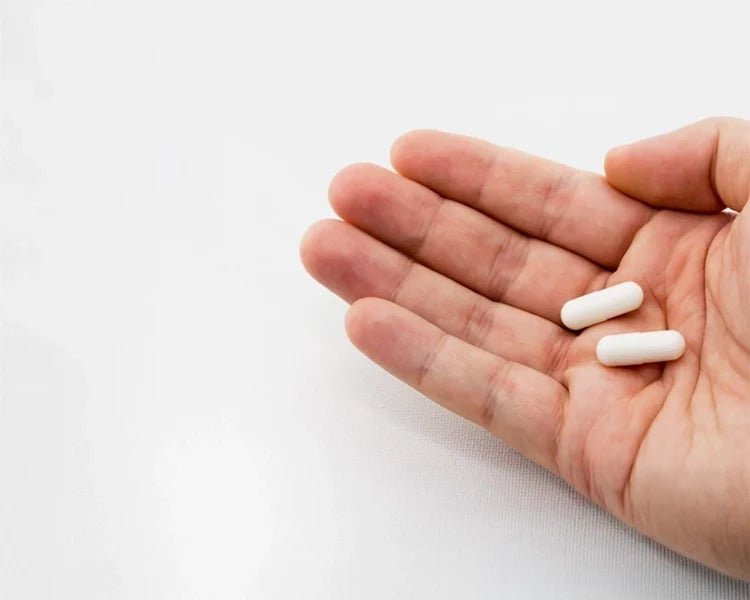Education
The impact of cancer on sexuality
Cancer can have a very diverse impact on a person's sexuality. It depends on many factors, including the type and stage of the disease, the type of treatment used and the individual characteristics of the patient and psychological support - both from specialists and the patient's relatives. Cancer may affect physical and hormonal changes in the body, decreased energy, chronic fatigue, changes in appearance, stress, emotional changes or self-esteem, body image and interpersonal relationships. All the areas indicated above may have a greater or lesser impact on sexuality. Some types of cancer and treatments can lead to physical changes that may affect sexual function. They can, but they don't have to - remember that each case is different, so generalizations are subject to a large margin of error. However, to use specific examples, surgery to remove genital organs may have a significant impact on experiences related to sexuality. Other treatments - such as radiotherapy (especially in the genital area) or chemotherapy - may be equally important and may result in pain, vaginal dryness or erection problems. The desire and appetite for physical intimacy and sex may also decrease [1] . Some types of cancer and their treatment may affect hormone levels. Examples of treatments that influence hormonal changes include removal of the ovaries, surgical treatment of breast cancer or targeted hormonal therapy. This type of treatment may affect both the level of desire and sexual function [2] . Cancer and its treatment usually lead to decreased energy and increased fatigue. It is often accompanied by changes in appearance, such as weight loss, hair loss, or scars after surgery. It is worth remembering that sexuality has various dimensions and may also include building a sense of security and attractiveness. Sex is not prohibited for cancer patients - unless it is a cancer related to the reproductive organs. Undoubtedly, it may be difficult for loved ones to realize that a person suffering from cancer often feels unattractive and defective. The change in self-perception affects the feeling of increasing stress and deepening depression of mood. This is a difficult moment both for the sick person and for their loved ones. A person suffering from oncology has every right to closeness - it is worth talking about their needs and concerns [3] . It may be helpful to formulate messages as direct as possible - e.g. "you can touch me", "don't be afraid to touch me, it doesn't hurt me", "it's important to me, I want you to keep touching me", or "I want you to as little as possible has changed between us. I have to go to the doctor, I have to take medications, but let everything else be as it used to be, I need your touch as much as before (or even more than before).” Cancer may affect self-esteem, body image, interpersonal relationships, and perception of one's sexuality. Some patients may feel a sense of loss, fear of rejection, shame, difficulty communicating with a partner or difficulties in finding their way in a new reality after the diagnosis. It is important that patients talk to their doctors about all problems related to sexuality - there are various strategies, therapies and treatment methods that may be helpful in dealing with the new challenges presented by the disease. Many patients also use the help of psychologists, sexologists or patient support groups [4] . Problems related to sexuality affect the quality of life and should not be treated marginally. Sexual health is important, and when problems arise, it is worth contacting specialists and asking for help. Monika Kaszuba [1] Dębska G., Samochowiec J. (2017). Sexual problems in the course of cancer. Psychiatria Polska, 51(6), pp. 1127-1138 [2] Lemańska A., Skrzypulec-Pinta V., Łuszczak M, et al. (2013). Sexual function in women after breast cancer treatment. “Medycyna Ogólna i Nauki o Zdrowiu”, 19(4), pp. 395-400 [3] Kowalski P., Filipiak M., Krajewski P. (2016) . Reproduction and sexuality of oncology patients. Nursing Polish, 2(60), pp. 175-178 [4] Sobolewski M., (2018). Sexuality of patients with cancer of the reproductive organs - recommendations of the European Society of Oncology (ESMO) and other scientific societies. Ginekologia Polska, 89(2), pp. 103-107
Learn moreAnti-cancer diet – is there a miracle diet?
Society's growing awareness of the impact of lifestyle on health means that when we are at increased risk of cancer or when we experience oncological disease in our immediate environment, we look for a way to help protect ourselves against cancer. In addition to realizing the need for early diagnosis, one of the first associations is often a change in the current lifestyle, including eating habits. And rightly so, because according to data published by the World Health Organization, as many as 30-40% of all cancer cases could be avoided by giving up stimulants (nicotine, alcohol), improving the quality of the diet, increasing physical activity and maintaining a healthy weight. The Cancer Research Foundation (WCRF) also drew attention to dietary factors as important in cancer prevention, which devoted as many as 8 out of 10 main recommendations for cancer prevention to elements related to diet. Similarly, the World Cancer Report 2020 emphasizes that both the quantity (e.g. energy value, dietary fiber content) and the quality of consumed food products and meals are important in dietary cancer prevention. Is there one universal anti-cancer diet model? When looking for the answer to this question, many people get lost in the thicket of information available on the Internet or popular mass media. A large number of publications on this topic, repeated dietary myths and nutritional recommendations not supported by scientific evidence make it difficult to decide on the optimal diet. It also happens that you may come across nutritional recommendations that are not only unjustified, but may even pose a threat to the health of the people using them, such as in the case of highly restrictive diets that eliminate selected dietary macronutrients or significantly deviate from the principles of the so-called rational nutrition. Therefore, first of all, it should be clearly noted that an anti-cancer diet is a way of eating that, on the one hand, provides ingredients with a potential protective effect, and on the other - limits or even eliminates those with proven carcinogenic effects. This is a diet model that is not specific and limited only to cancer, but serves to improve the health of the general population, e.g., at the same time protects against the development of obesity, cardiovascular diseases, or type 2 diabetes. In contrast, highly individualized dietary assumptions support for oncological therapy (because there is no diet that in itself "cures cancer"), the main principles of the anti-cancer diet apply in many clinical situations, can be used by a wide range of recipients and, importantly, are safe. Principles of an anti-cancer diet in a nutshell The current state of scientific knowledge allows us to conclude that the most beneficial in this respect is a diet pattern based mainly on plant products, rich in whole grain products, non-starchy vegetables, fruits and legumes. Plant products are the main source of substances with anti-carcinogenic properties and reducing the risk of recurrence - dietary fiber, vitamins and minerals, and bioactive natural substances, including: phytoestrogens, polyphenols, phytosterols and monoterpenes. WCRF recommends that plant products be consumed in at least 5 main meals and that their amount per day should not be less than 400g. In the case of dietary fiber, its daily intake should not be lower than 30g. According to WCRF, animal products should be significantly restricted in the diet - mainly red meat. Its consumption should not exceed 3 servings per week (350-500 grams per week). The consumption of processed meat should be reduced to the minimum necessary, and if possible, this type of food products should be completely excluded from the diet. In fact, the anti-cancer diet does not involve giving up dairy products, poultry or fish, but it clearly indicates that their share in the daily menu cannot dominate the amount of plant products. Similarly to a "healthy, rational diet", people who want to reduce the risk of cancer are recommended to significantly limit or even give up the consumption of processed foods high in saturated and trans fats and sugar. Excluding sweetened drinks from the diet is another feature of the anti-cancer diet. These drinks, by providing simple sugars, also increase the amount of calories consumed and result in an increase in body fat. Many previous studies have proven that some cancers, including cancer of the oral cavity, esophagus, stomach, pancreas, liver, large intestine, breast and endometrium, may result from excess body weight, hence it is also important to ensure that the energy value of the diet was tailored to the real needs of the body. In the case of alcohol, complete abstinence is recommended. Bearing in mind that no food product contains all potentially anticarcinogenic ingredients, make sure to diversify your diet. Only by eating a variety of foods can you provide complementary ingredients with anti-cancer potential. To sum up, it is worth emphasizing once again that there is no single, ideal for everyone and 100% effective model of an anti-cancer diet, but there is strong evidence that a diet based on products of plant origin (various colored vegetables and fruits, whole grain products, legumes) , in which the supply of meat (especially red), processed products (e.g. instant food, fast food, rich in E-additives), simple sugars and alcohol is eliminated, may protect against the development of cancer. The goal of effective dietary health prevention is to permanently improve eating behavior, so when looking for the perfect anti-cancer diet, do not expect a "miracle diet", but focus on a well-thought-out, rational one, tailored to your capabilities and goals, and long-term improvement of eating habits in the direction of the principles described above. Małgorzata Moszak World Cancer Research Fund/American Institute for Cancer Research. Diet, Nutrition, Physical Activity and Cancer: a Global Perspective. Continuous Update Project Expert Report 2018 Key TJ, Bradbury KE, Perez-Cornago A, et al. Diet, nutrition, and cancer risk: what do we know and what is the way forward? BMJ. 2020 Mar 5;368:m511. Wild CP, Weiderpass E, Stewart BW, editors (2020). World Cancer Report: Cancer Research for Cancer Prevention. Lyon, France: International Agency for Research on Cancer. Available from: http://publications.iarc.fr/586. License: CC BY-NC-ND 3.0 IGO.
Learn moreThe role of a sexologist in oncological treatment
Cancer treatment is a complex process that affects all aspects of patients' lives, including their sexual health. Sexual problems are a common side effect of cancer therapy, but they are also often underestimated or downplayed and do not receive enough attention. In recent years, the role of a sexologist in oncological treatment has become more popular, and at the same time, the awareness of how a patient with experience of oncological disease can cope with challenges related to sexuality and holistically improve the quality of his life has increased significantly. The role of a sex therapist The role of a sexologist - identification of difficulties, education, creation of a personalized therapeutic plan and cooperation with the treatment team A sexologist can play a key role in identifying relationship difficulties in an oncology patient and his partner. The specialist conducts a detailed interview to understand the patient's symptoms, fears and changes in sexual functioning. Thanks to this, he can adapt the appropriate therapeutic approach. Education is an equally important element. Knowledge about the impact of cancer therapy on sexual health is extremely important for patients. A sexologist can provide information about physical, emotional and psychological changes related to the treatment of oncological diseases and their impact on sexual life. Unfortunately, it still happens that patients are not informed by their oncologist about potential options for taking care of their reproductive health. Thanks to meetings with a sexologist, patients learn about the forms of fertility protection they are entitled to. Education can help patients understand that sexual problems are a natural consequence of cancer treatment and that there are effective strategies to deal with them. It is worth remembering that each patient has unique needs and preferences. A sexologist can develop a personalized therapeutic plan, taking into account both physical and psychological aspects. Therapy, depending on the patient's needs and situation, it may include individual counseling or couples therapy - depending on the patient's situation and needs. Cooperation with the treatment team is also invaluable. A sexologist can act as an intermediary between the patient and the treatment team. This makes health care integrated. A sexologist can cooperate with oncologists, nurses and therapists. This has a direct impact on how comprehensive and tailored the therapy can be to the individual needs of the patient. How can cancer affect sexuality ? Chronic diseases are a source of chronic stress among those experiencing them their patients. In turn, stress can contribute significantly leading to the development (or deepening of existing) sexual disorders. Cancer and its treatment can have a variety of impactful effects on the patient's sexuality. The impact of cancer on sexual health may include physical changes such as hair loss, skin changes, significant weight loss or swelling. Hormonal changes will affect not only the dysregulation of the monthly cycle in women, fluctuations in libido, or difficulties in obtaining/maintaining an erection in men, but also emotional difficulties, fatigue and weakness. It is worth noting, however, that the impact of oncological disease on a patient's sexuality is individual and dependent on many factors, including type of cancer, stage of the disease, type of treatment, and emotional support. Physical changes and sexuality Cancer therapies such as surgery, radiotherapy and chemotherapy usually lead to significant changes in various areas of the body - including the sexual organs and others, which may have a significant impact (direct or indirect) on the patient's sexual dysfunction. Surgical treatment - amputation of the breasts and testicles - leaves an irreversible anatomical defect. Chemotherapy and radiotherapy may cause nausea, local neuropathies and hair loss. The effects of this type of treatment may significantly affect your sense of attractiveness, self-esteem, or simply discouragement. to engage in any activity - including sexual activity. Hormonal changes and sexual health Selected types of cancer and the therapies undertaken as a result of them, can affect hormone levels in the body. Deficiency of such hormones such as testosterone in men or estrogen in women, can lead to a significant reduction in libido, as well as erectile dysfunction or vaginal lubrication. Emotional problems, mental problems Cancer can cause strong emotions, such as fear and sadness or uncertainty. The anxiety felt about treatment and worries about the future can lead to difficulty focusing on intimacy and sexuality. In addition, feeling such intense and at the same time difficult emotions may affect sexual desire and the quality of sexual life. Fatigue and weakness Oncological treatment is often associated with chronic, general fatigue and weakness of the body. These symptoms may affect your energy and sexual interest. Changes in body image Cancer and its treatment can lead to significant changes in body appearance, such as weight loss, the appearance of scars or hair loss. These changes may affect the patient's self-attractiveness and self-confidence, which in turn may affect sexual energy and interest. Fertility disorders Some cancer treatments can make it difficult to get pregnant pregnant or to an increased risk of complications during pregnancy. This may impact family planning and reproductive health decisions. The role of a sexologist is to accompany, educate, and present possible ways to pursue sexuality and ensure closeness between partners. AUTHOR: Monika Kaszuba SEXOLOGIST, PSYCHOLOGIST, PSYCHOTHERAPIST
Learn more





